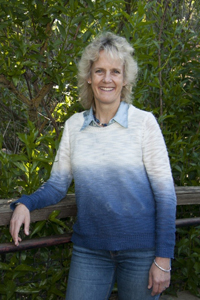Sex in the petri (dish)?
This seminar will be presented by Professor Alison Van Eenennaam, from the University of California, as part of the Douglas Ormonde Butler Memorial Lectureship.
There are new opportunities to accelerate genetic improvement of livestock by incorporating phenotypic and genomic information, deep learning, advanced reproductive technologies, and precision breeding methods into conventional breeding and selection programs. New developments are poised to enable the development of a population of commercial animals that lack their own germline cells, but which instead carry transplanted gonial stem cells delivering the genetics from elite donor stud animals. This could pave the way for commercial sires to deliver elite genetics (“artificial insemination on legs” if you will). Perhaps even more tantalizing is the possibility of being able to perform meiosis in a petri dish, removing the need even for legs. Novel breeding schemes based on exciting developments in embryonic stem cell technologies involving multiple in vitro rounds of genomic selection, gene editing, gamete production and fertilization could reduce by orders of magnitude both the generation interval and the genetic lag between nucleus and commercial populations. The stud sector could conceivably be housed in a laboratory. Such developments would be especially valuable for species such as cattle with long generation intervals. Putting these schemes into practice will require investment and research to successfully scale the requisite technologies, and likely some industry reorganization to maintain performance recording and distribute elite genetics. Another concomitant challenge will be social license to employ such breeding schema, especially in well-fed, affluent nations. It is important that those actively working in genetic improvement inform and participate in the public discussion about the opportunity costs of precluding access to breeding innovations, especially in countries where this decision will have little direct impact on consumers, but will nonetheless be associated with substantial undesirable environmental trade-offs. While science may determine what is possible, societies will decide what is acceptable based upon their unique needs, attitudes to animals, and societal norms.
About Series of events as part of the Douglas Ormonde Butler Memorial Lectureship
The Douglas Ormonde Butler Memorial Public Lecture and Technical Seminar are delivered by a person of outstanding merit and international reputation in the field of genetics. This year we are also delighted to screen the movie Food Evolution, followed by an audience discussion.
This year's Douglas Ormonde Butler Memorial Lecturer is Professor Alison Van Eenennaam from the University of California, Davis.
 About Professor Alison Van Eenennaam
About Professor Alison Van Eenennaam
Alison L. Van Eenennaam is a Cooperative Extension Specialist in the Department of Animal Science at the University of California, Davis and runs the Animal Genomics and Biotechnology Laboratory. She has served on committees such as the USDA National Advisory Committee on Biotechnology in the 21st Century and was awarded the 2014 Borlaug CAST Communication Award. Van Eenennaam writes the Biobeef Blog.
